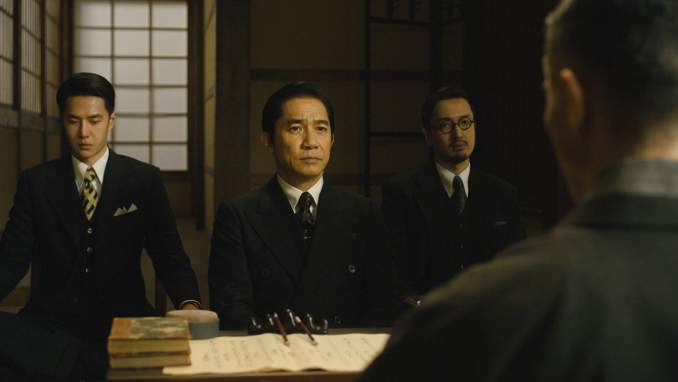Tony Leung Crosses and Double Crosses in Moody, Messy Chinese Noir Hidden Blade

The warring factions within Japan-occupied China during the Second Sino-Japanese War are perfect instruments for a complex period-set spy story. A Japanese intelligence officer’s allegiances could intersect with a Chinese collaborator working for the puppet government set up in Shanghai. They’d conflict with the spies of the Chinese nationalist resistance and those of the Chinese communists, bitter foes ostensibly in a united front as they attempt to get their country back before resuming their civil war. Political, ethnic and national ties offer hints to—but nothing conclusive about—a person’s objectives. To those whose familiarity with world conflict in the ‘30s and ‘40s begins and ends with the European theatre of World War II, Hidden Blade may feel a little impenetrable. Not understanding the rules of the game makes double-dealing tough to clock. But the handsome noir from writer/director Cheng Er skillfully makes the ideological crash (and inevitably propagandistic bent) part of the confounding atmosphere, shrouding it in smoke, food, mirrors and sake.
Piercing the haze, as he always does, is Tony Leung. A career of peering through cigarette smoke, of slinking down hallways and smoldering in close conversation, prepared his warm charisma to glow through even the thickest fog. The suave standby reunites with the time period and subject matter of his Ang Lee film Lust, Caution as Director He, who works in tense tandem with his Japanese superior Watanabe (Hiroyuki Mori) and two younger officers, the bespectacled and immediately skeevy Mr. Wang (Eric Wang), and the straight-from-K-pop-smooth Mr. Ye (Wang Yibo). Or does he?
-

-

-

-

-

-

-

-

-

-

-

-

-

-

-

-

-

-

-

-

-

-

-

-

-

-

-

-

-

-

-

-

-

-

-

-

-

-

-

-








































